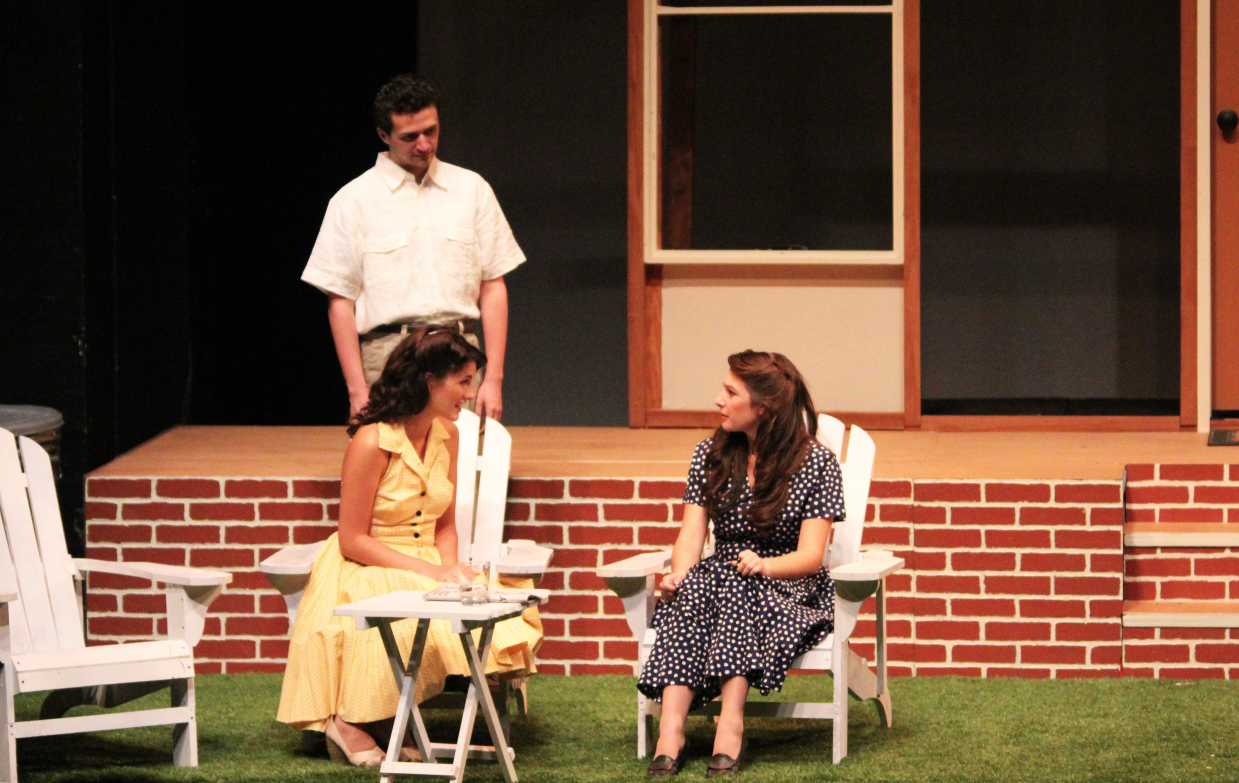To open its 2014–15 season, the Yale Dramatic Association will bring elements of Greek classics into the work of a legendary American playwright.
The Dramat’s first fall experimental production, “All My Sons” by Arthur Miller, goes up Thursday night at the Yale Repertory Theatre, incorporating themes found in ancient Greek drama and post-World War II suburban life. Director Isaac Hudis ’16 and producer Hannah Worscheh ’17 said the play’s audiences could look forward to the cast and crew’s mixing of classical tropes with a modern storyline makes the play an exciting choice for the first big Yale production of the year.
“What was exciting was looking at the show as a modern classic in the same tradition as Ancient Greek theater. There’s so many references — structural and content-wise — to ancient Athenian theater,” Hudis explained.
Such references, Hudis and Worscheh explained, are accounted for by the play’s storyline. Centering on the life and family of Joe Keller, a factory owner who sells cracked cylinder-heads to the Air Force during WWII and becomes responsible for the deaths of 21 pilots, the play takes place over the course of a few hours and deals with Joe’s sons, one of whom is missing in action after the war, while the other attempts to marry the sweetheart of his missing brother. Drama ensues as Joe attempts to reconcile the gravity of his crime with his devotion to his family.
Hudis and Worscheh said that the play reminds them of themes found in tragedies by Sophocles and Euripides, many of which also revolve around the story of a family after a war, a son’s return and the moral consequences of a grave crime. They said that they read a number of such plays in classes they took at Yale, noting that the “modern classic” aspect of “All My Sons” inspired their interest in the play. Part of the production design focuses on the tension between the modern and the ancient by invoking classical images such as a Greek chorus and an Athenian amphitheater.
In addition to preserving the Classical nature of the play, Hudis said, the minimalist set and photorealistic props in the production aim to depict a realistic story while leaving some of the aesthetic aspects open to interpretation by the audience. For example, the Keller house in the production consists of just the structural frame of a house, creating what Worscheh sees as a shift away from more conventional approaches to the play.
“Particularly because we didn’t want this to be another traditional play, we decided to juxtapose the traditional nature of the show with a more abstract, modern set,” Worscheh added.
Iason Togias ’16, who plays the lead role of Joe Keller, said he believes that the minimalist set design will still keep audience members immersed in the play despite its lack of extravagance.
Referencing the complexity of the play’s plotline, Togias added that the most rewarding aspect of the play for him has been the task of portraying a character that is simultaneously responsible for the evil of killing 21 people and making sacrifices that the average individual would make for the good of his family.
“Trying to marry those two sides of Joe, the charismatic businessman and the horrifically self-interested family man while at the same time portraying him as fundamentally human has been the biggest challenge and also what’s made it a really satisfying experience,” Togias said.
Performances of “All My Sons” will run through Oct. 4.







